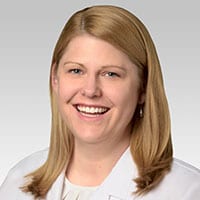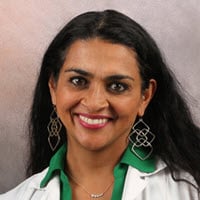This transcript has been edited for clarity.
Indu Subramanian, MD: I'm so excited today to talk to Kathrin LaFaver, who is a friend, colleague, and amazing force of nature who I came to know through the Women Neurologists Group and so many other cool things that she's started. She currently is a neurologist in Saratoga Springs, New York. We're going to be talking about her exploration of lifestyle medicine, what drove her to develop this passion, and some other things. Kathrin, Welcome.
Kathrin LaFaver, MD: Thanks so much for the kind introduction.
Subramanian: People are always a little bit confused about all these different subspecialties that have started. There's integrative medicine, functional medicine, and things like that. Can you first teach us, what is lifestyle medicine?
LaFaver: Absolutely. The official definition is that it's the use of evidence-based lifestyle and therapeutic interventions to prevent, treat, and reverse chronic diseases.
The pillars of lifestyle medicine are nutrition in the form of a predominantly plant-based, whole-food diet; regular physical activity or exercise; restorative sleep; stress management or stress reduction; positive social interactions and connectivity with other people; and finally, the avoidance of toxic substances. The important differentiating factor is that these pillars are really based on research in a number of different disorders — primarily cardiovascular disease, diabetes, and heart disease — but are really applicable to human health in general.
I was very interested to explore how we as neurologists can use these concepts to help our patients achieve an optimum quality of life.
Subramanian: Our field has really come a long way, I feel, because people used to say that we had no treatments to cure our patients, that we would just "diagnose and adios." Now I think we have some pretty spectacular treatments, including this concept of doing some of these preventive, lifestyle-type things that is really entering the fold. I'm so excited to see where we together can take this field.
You had been practicing for a while in classic Western-type approaches and then decided to study this. What exactly led you to that decision?
A Personal Choice That Became a Change in Practice
LaFaver: I was a traditionally trained neurologist/movement disorder specialist in academic medicine. Like for so many of those listening to this, the pandemic was a really dramatic shift in my life and caused me to rethink my career, what I wanted to do, and how I'm going to practice. I actually got infected with COVID-19 myself very early in the pandemic while attending a conference in March 2020. Then I was struggling a bit at the time with social isolation and having two small kids at home. Life was very different. I found myself coping a lot with eating and developing more unhealthy habits — not just with the pandemic, but over several years.
As physicians, we're meant to be healers. We're telling other people almost all day long how to be healthy, exercise more, etc., and trying to help them incorporate these things in their lives. But as physicians or other healthcare professionals, do we actually apply these things in our own lives?
These things have led me to explore some broader views of medicine that can help us all to live our own healthiest lives, and our patients to incorporate these measures. That was really the motivation for me to learn more about these approaches.
None of these things are new, per se. We all know that a healthy diet, exercise, and a healthy body are very important. What I think differentiates this is the focus on putting these lifestyle measures at the center. It's not just something we mention in the last 2 minutes of a visit or when patients are leaving through the door, almost as an afterthought. Instead, you probably want to start with these things.
For example, before giving someone a medication for depression, you really explore what's going on. You had this beautiful paper on loneliness and social connection during the pandemic. We need to talk about these things. We need to talk about sleep, about the social situation someone is in, before we just medicate. I think it's a shift that can have pretty dramatic consequences for our patients.
Applying Lifestyle Medicine to Parkinson's Disease
Subramanian: It makes so much sense and the timing is so great. And I'm so excited to hear this coming out of another colleague's mouth because I've thought about this approach for a while.
It does make sense to put these things in the forefront. But you're absolutely right. The last chapter of any book that you read is the nonpharmacologic, lifestyle approaches. It's sort of this throwaway thing at meetings too. I really think that it does have to return to being a foundational element in our approach to many neurodegenerative diseases, but specifically Parkinson's disease. What practical things have you done in your clinic in patients with Parkinson's disease?
LaFaver: We all know that Parkinson's disease is more than just lack of levodopa. In addition to motor symptoms, many people have the nonmotor issues, including memory and mood issues, that are actually the biggest determinants of quality of life. Those things often do not respond to medication treatment.
In my practice, I try to explore things as much as possible and give these patients tangible advice on recognizing the importance of these principles. That can help shift the expectation that every time something isn't going right or there's a bad day, I'm going to make changes to the dopamine medications.
Instead, it's about having a broader approach and really honing in on these things that are under our control. What nutrients do we feed our body? A lot of these patients have fatigue. If they're eating sugar and highly processed foods all day, how is that contributing to how they feel ultimately? It's really important for all of us broadly, but especially for those with neurologic illness, to have a closer look at overall nutrition, sleep quality, and social connections as ways to make a difference in how people feel every day. That's a way to help with these fluctuations that people with Parkinson's feel from day to day.
That's just a specific example. I really try to have this approach for pretty much anyone I see. Obviously, the focus shifts based on the person and the situation they're in.
Subramanian: You mentioned that one of the things that attracted you to this research was some stressors in your own life and some unhealthy lifestyle choices that you had adopted, including eating ice cream and things like that. Could you describe how this approach has impacted your own life as a clinician and a busy mom, balancing the work-life stuff with all the stressors that are happening? How have you been able to use these principles in your own life?
LaFaver: It was one of the main motivating factors in looking into these things. I was living a very busy life of being in academic medicine, having young children at home, balancing all these things, and having a lot of stress with the pandemic-related uncertainties and so on.
I was telling myself that I was way too busy for exercise — for years. Then you try to cope with stress, and food is kind of an easy answer; whether it's the ice cream or chocolate, you get that little sugar rush that makes you feel better. But ultimately that leads to weight gain and feeling very tired.
I have changed my nutrition to a mostly plant-based, whole-foods diet. I've actually enjoyed that. There are all these apprehensions we have about how we can't do a certain thing or a certain lifestyle change, like giving up sugar. I think it's important to realize that it's never 100% in how you commit to something. It's okay to try it out and surprise yourself.
It's the same thing with exercise. I've really prioritized that. I have a daily yoga practice and do aerobic exercises regularly. I've definitely noticed a lot of positive changes, which I talk about all the time with my patients and anyone who wants to listen. Changes can happen very quickly. I was just talking to my office staff 2 weeks ago about lifestyle medicine, and one of my team members told me yesterday that she was so inspired to make some nutrition changes and lost six pounds. Once people try those positive changes, they'll often continue.
Subramanian: I also think that modeling it for your patients, for those that you love, and for the people in your office is pretty important and a very effective way to teach as well.
Tips for Helping Patients Commit to Healthy Changes
LaFaver: There are two other things about lifestyle medicine that make it really special. One is the emphasis on physician help. It can sometimes feel like a burden. I also felt a bit hypocritical telling all my patients with Parkinson's disease to exercise, but I wasn't exercising myself. It's been shown in the cardiovascular research that physicians who do have a healthy eating pattern and exercise themselves are much more likely to counsel their patients on it, and to do so effectively.
The second point that's really emphasized by the American College of Lifestyle Medicine is how to optimize patient coaching. As we know, it's not a one-size-fits-all approach. Just telling people to all start exercising, and not really spending any time on it, is usually not that effective. Meeting people where they are and assessing their readiness to make lifestyle changes has to come first.
Then following that, if someone hasn't thought of making changes and isn't motivated, giving them information to empower them about the possible benefits is actually the right approach. Conversely, if someone has already started making changes or wants to make changes, motivational interviewing can be very helpful, as is helping people make specific goals. If people are already underway, there are additional things we can do to support them, to prevent relapses, to connect them with other resources.
Essentially, it's not just theoretically about knowing what's good for us and our patients, but also learning the tools for how to help people make these changes happen. Although that's very important, it isn't emphasized in our traditional training as physicians.
Subramanian: Absolutely. It's so important.
Thank you so much for this amazing work that you've been studying. As a last point, for those folks out there who want to learn more about this field, can you recommend any resources?
LaFaver: You can become a member of the American College of Lifestyle Medicine. They have amazing resources, including handouts for your patients to learn this information. You can also get board certified, which I did pursue last year. That can add an extra layer of knowledge, but it's not necessary. There are a lot of courses that anyone can take through the American College of Lifestyle Medicine. Of course, there are other materials out there, but that's a good start.
I love to help others find that for themselves and their patients. So, thanks so much for the opportunity to talk to you.
Subramanian: Thank you for being a great guest, and thanks to Medscape for hosting this. We look forward to more conversations in this out-of-the-box field.
Follow Medscape on Facebook, Twitter, Instagram, and YouTube
Medscape Neurology © 2022 WebMD, LLC
Any views expressed above are the author's own and do not necessarily reflect the views of WebMD or Medscape.
Cite this: Kathrin LaFaver, Indu subramanian. One Doc's Personal Journey to Practicing Lifestyle Medicine - Medscape - Mar 10, 2022.














Comments